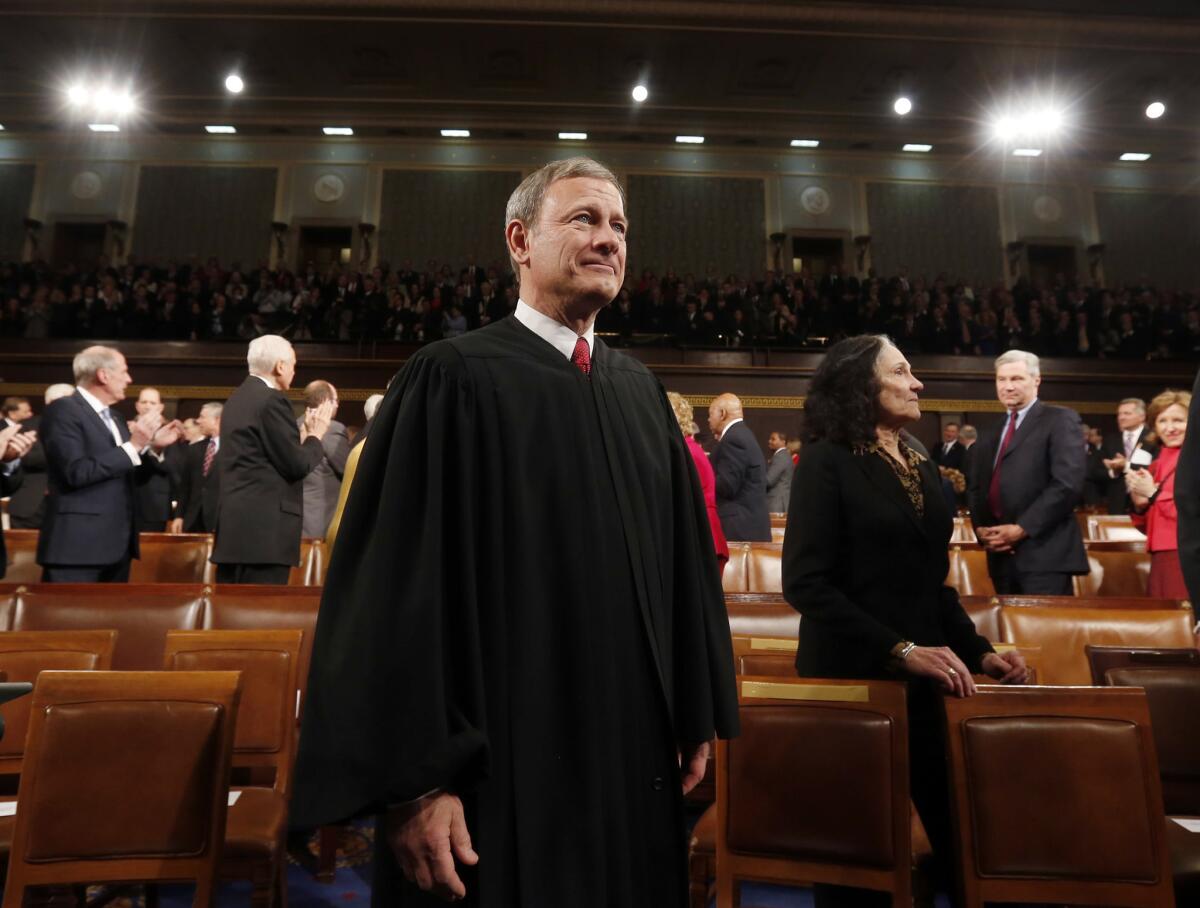Chief Justice Roberts’ year-end report urges federal judges to pick up the pace

Chief Justice John G. Roberts Jr. reached back in history for his year-end report.
- Share via
Reporting from Washington — U.S. Chief Justice John G. Roberts Jr. says too much time and money are wasted trying to resolve lawsuits in this country, and he urged federal judges to stop the “gamesmanship and procedural posturing” by lawyers that drag out litigation.
“A well-timed scowl from a trial judge can go a long way to moving things along crisply,” the chief justice wrote in his year-end report on the federal judiciary.
Roberts serves as the nation’s chief justice as well as the leader of the Supreme Court, and he lauded new federal rules on civil procedure that require lawyers and judges to work together to resolve cases faster.
“We must engineer a change in our legal culture that places a premium on the public’s interest in speedy, fair and efficient justice,” he wrote.
Roberts has a fondness for history, and he introduced what could be a dry topic by describing an earlier set of rules for resolving disputes.
“In 1838, John Lyde Wilson, a former governor of South Carolina, made a grim contribution to the literature of dispute resolution by publishing ‘The Code of Honor; Rules for the Government of Principals and Seconds in Duelling,’” he began.
“That 22-page booklet, sized to fit comfortably alongside a gentleman’s matched pair of dueling pistols, specified the procedure for issuing a challenge, the duties of the seconds, and the proper conduct of the duel itself.”
“Our Nation had lost Alexander Hamilton to a senseless duel in 1804. Abraham Lincoln and Mark Twain could have perished in duels if their seconds, in each instance, had not negotiated an amicable solution,” he added.
Dueling was outlawed by the mid-19th century, he said, and the courts have since become the accepted forum for resolving disputes.
“We should not miss the opportunity to help ensure that federal court litigation does not degenerate into wasteful clashes over matters that have little to do with achieving a just result,” he said.
More to Read
Sign up for Essential California
The most important California stories and recommendations in your inbox every morning.
You may occasionally receive promotional content from the Los Angeles Times.














